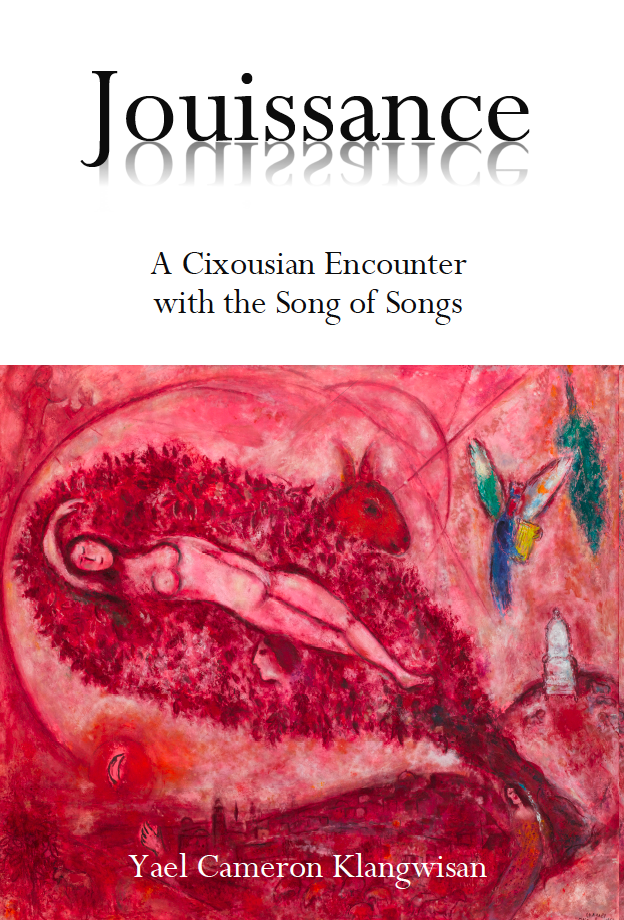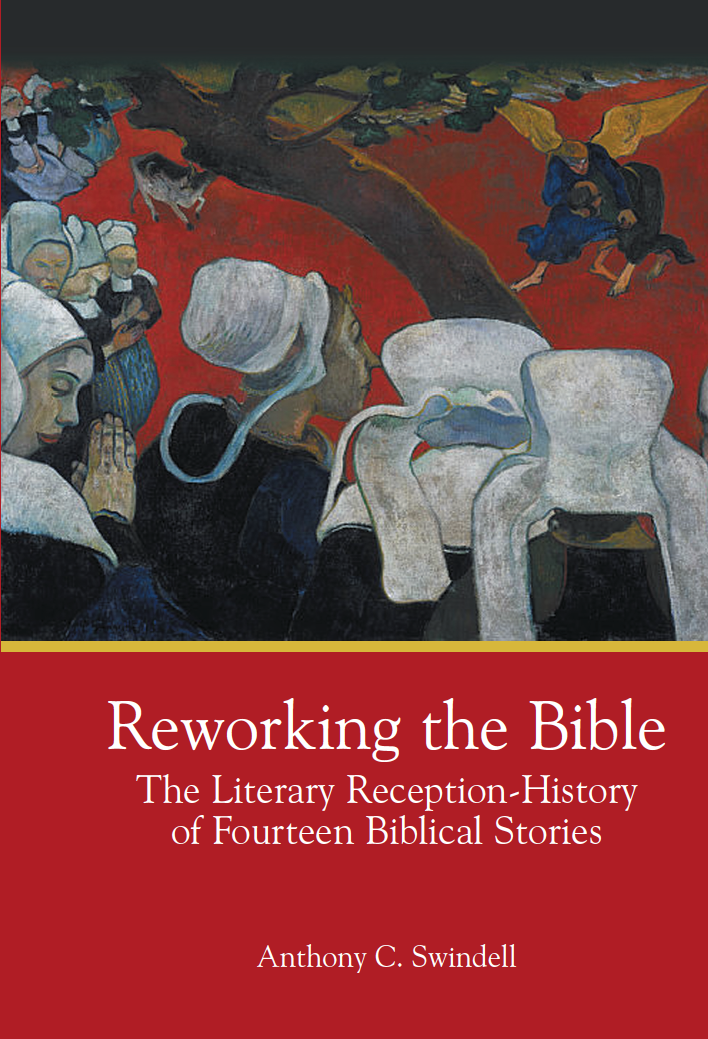Simulating Aichele: Essays in Bible, Film, Culture and Theory
Published: Oct 2015
£55.00
Simulating Aichele pays tribute to the title of George Aichele's 2011 book, Simulating Jesus. In contemporary biblical scholarship, Aichele is a notable leader whose writings explore the problems of meaning and referentiality in the Bible and in biblical texts found in non-biblical contexts. His close readings of canonical texts alongside 'the fantastic' in film, television and literature reveal the relationships between texts and intertexts. Such juxtapositions expose gaps and liberate strange voices in the Bible and break the stranglehold of canonical ideologies. Aichele shows how the afterlives of biblical texts simultaneously produce present and past realities by simulating both. These afterlives not only pull ancient texts into the present but in the process also change the precursor text(s).
This Festschrift presents some of the afterlives of Aichele's research in Bible, film, culture and theory. Exercises in intertextuality and textual liberation include Yvonne Sherwood's reading of Jacob and Esau alongside a Sierra Leone twin story 'Kanu and the Book'; Richard Walsh's pairing of Jesus' final lament in Mark with Kafka's 'In the Penal Colony'; Tina Pippin's exploration of the afterlives of Jesus' baptism in Mark; Gary A. Phillips's ethical imagining of Martha as the Levinasian Other; and Scott S. Elliott's interpretation of 1 Corinthians 9 in light of Roland Barthes' 'Neutral'. Other contributors explore Bible and film. Robert Paul Seesengood and Jennifer L. Koosed review recent apocalyptic films; Fred W. Burnett analyses the greatest contemporary slacker, the Dude, from The Big Lebowski; and Erin Runions compares the panoptic desire for complete knowledge found in 1 Corinthians and A Scanner Darkly. Finally, Roland Boer looks at the unexpected afterlives of Hebrew and Christian scriptures in Lenin's speeches, and Stephen D. Moore offers a retrospective essay on postmodernism and biblical studies.
Simulating Aichele: Essays in Bible, Film, Culture and Theory
£55.00
Simulating Aichele pays tribute to the title of George Aichele's 2011 book, Simulating Jesus. In contemporary biblical scholarship, Aichele is a notable leader whose writings explore the problems of meaning and referentiality in the Bible and in biblical texts found in non-biblical contexts. His close readings of canonical texts alongside 'the fantastic' in film, television and literature reveal the relationships between texts and intertexts. Such juxtapositions expose gaps and liberate strange voices in the Bible and break the stranglehold of canonical ideologies. Aichele shows how the afterlives of biblical texts simultaneously produce present and past realities by simulating both. These afterlives not only pull ancient texts into the present but in the process also change the precursor text(s).
This Festschrift presents some of the afterlives of Aichele's research in Bible, film, culture and theory. Exercises in intertextuality and textual liberation include Yvonne Sherwood's reading of Jacob and Esau alongside a Sierra Leone twin story 'Kanu and the Book'; Richard Walsh's pairing of Jesus' final lament in Mark with Kafka's 'In the Penal Colony'; Tina Pippin's exploration of the afterlives of Jesus' baptism in Mark; Gary A. Phillips's ethical imagining of Martha as the Levinasian Other; and Scott S. Elliott's interpretation of 1 Corinthians 9 in light of Roland Barthes' 'Neutral'. Other contributors explore Bible and film. Robert Paul Seesengood and Jennifer L. Koosed review recent apocalyptic films; Fred W. Burnett analyses the greatest contemporary slacker, the Dude, from The Big Lebowski; and Erin Runions compares the panoptic desire for complete knowledge found in 1 Corinthians and A Scanner Darkly. Finally, Roland Boer looks at the unexpected afterlives of Hebrew and Christian scriptures in Lenin's speeches, and Stephen D. Moore offers a retrospective essay on postmodernism and biblical studies.
Jouissance: A Cixousian Encounter with the Song of Songs
Published: Jan 2015
£50.00
This is a remarkable book that sets out to deconstruct academic writing on the Song of Songs. It emerges at that place where biblical scholarship on the Song of Songs is subverted by French literary theory, where biblical literature escapes biblical hermeneutics, and where the ancient poetry of the Song of Songs comes face to face with the modern poetry of Hélène Cixous. The question asked is whether a poetic text like the Song of Songs can be systematized, interpreted and worked out. For as much as Jouissance is a work on the Song of Songs, it is also a work about reading poetically, challenging the notion that the Song of Songs can be read at all.
In response the reader-author presents an-'other' kind of reading. She inhabits the text of the Song of Songs, bringing herself to it; allowing herself to be taken in its jaws, one time, and once only, and then giving it away and refusing possession. If this could be called reading, it would be live-reading: a reading of the Song of Songs that is birthed and dreamed, that joins breath with breath. This is a reading that is allowed to live.
The reader is invited via the midwifery of Hélène Cixous's poetic texts to encounter the enigmatic poetry of the Song of Songs, its creative and transformative polysemy, engendering a 'third body', third text, that is reflective and multivalent, inscripted with elements that are continuous and discontinuous, as well as dynamic, mythic and subversive. Read in the spirit of Cixousian literary theory, Jouissance is a visceral-corporeal experience of the transgressive and creative act of the Song of Songs that merges the limits of language with the bliss and suffering of the beyond.
Jouissance: A Cixousian Encounter with the Song of Songs
£50.00
This is a remarkable book that sets out to deconstruct academic writing on the Song of Songs. It emerges at that place where biblical scholarship on the Song of Songs is subverted by French literary theory, where biblical literature escapes biblical hermeneutics, and where the ancient poetry of the Song of Songs comes face to face with the modern poetry of Hélène Cixous. The question asked is whether a poetic text like the Song of Songs can be systematized, interpreted and worked out. For as much as Jouissance is a work on the Song of Songs, it is also a work about reading poetically, challenging the notion that the Song of Songs can be read at all.
In response the reader-author presents an-'other' kind of reading. She inhabits the text of the Song of Songs, bringing herself to it; allowing herself to be taken in its jaws, one time, and once only, and then giving it away and refusing possession. If this could be called reading, it would be live-reading: a reading of the Song of Songs that is birthed and dreamed, that joins breath with breath. This is a reading that is allowed to live.
The reader is invited via the midwifery of Hélène Cixous's poetic texts to encounter the enigmatic poetry of the Song of Songs, its creative and transformative polysemy, engendering a 'third body', third text, that is reflective and multivalent, inscripted with elements that are continuous and discontinuous, as well as dynamic, mythic and subversive. Read in the spirit of Cixousian literary theory, Jouissance is a visceral-corporeal experience of the transgressive and creative act of the Song of Songs that merges the limits of language with the bliss and suffering of the beyond.
Reworking the Bible: The Literary Reception-History of Fourteen Biblical Stories
Published: Jun 2010
£55.00
Reworking the Bible is a substantial account of the reception history of fourteen biblical stories —those of Eden, the Flood, Jacob and Esau, Moses and the Exodus, Joshua and Rahab, Samson, Nebuchadnezzar, Susanna, Esther, Jesus Christ, Salome, Lazarus, the Prodigal Son and the Descent into Hell. Full of fascinating detail of the afterlives of these biblical narratives, the book also offers a sophisticated theoretical analysis of the processes of reworking: major hypertexts from The Dream of the Rood to Margaret Atwood's The Year of the Flood come under the spotlight of the theories of Genette about rewriting and of Bakhtin about chronotopes and polyphony. In the final chapter, the material is viewed from the point of view of its spatial overtones, highlighting works that use the retelling of biblical stories to transport the reader to somewhere beyond controlling monological cultures.
As well as providing close readings of some extraordinary literary reworkings, the book provides a guide to the available critical literature. Both the biblical stories themselves and the works of Chaucer, Shakespeare, Racine, George Eliot, Turgenev, Kafka, Iris Murdoch, Julian Barnes, Ben Okri and many others are cast in a new light, including many plays, novels and poems that have been surprisingly neglected. The works discussed range from the hilarious to the horrific and have the capacity to refresh and even transform our reading of the Bible.
Reworking the Bible: The Literary Reception-History of Fourteen Biblical Stories
£55.00
Reworking the Bible is a substantial account of the reception history of fourteen biblical stories —those of Eden, the Flood, Jacob and Esau, Moses and the Exodus, Joshua and Rahab, Samson, Nebuchadnezzar, Susanna, Esther, Jesus Christ, Salome, Lazarus, the Prodigal Son and the Descent into Hell. Full of fascinating detail of the afterlives of these biblical narratives, the book also offers a sophisticated theoretical analysis of the processes of reworking: major hypertexts from The Dream of the Rood to Margaret Atwood's The Year of the Flood come under the spotlight of the theories of Genette about rewriting and of Bakhtin about chronotopes and polyphony. In the final chapter, the material is viewed from the point of view of its spatial overtones, highlighting works that use the retelling of biblical stories to transport the reader to somewhere beyond controlling monological cultures.
As well as providing close readings of some extraordinary literary reworkings, the book provides a guide to the available critical literature. Both the biblical stories themselves and the works of Chaucer, Shakespeare, Racine, George Eliot, Turgenev, Kafka, Iris Murdoch, Julian Barnes, Ben Okri and many others are cast in a new light, including many plays, novels and poems that have been surprisingly neglected. The works discussed range from the hilarious to the horrific and have the capacity to refresh and even transform our reading of the Bible.



